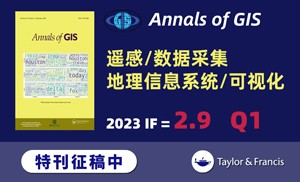Nature Reviews Clinical Oncology ( IF 81.1 ) Pub Date : 2021-07-06 , DOI: 10.1038/s41571-021-00530-z Kathryn M Cappell 1 , James N Kochenderfer 2
Chimeric antigen receptors (CARs) are engineered proteins designed to target T cells to cancer cells. To effectively activate the T cells in which they are expressed, CARs must contain a costimulatory domain. The CAR T cell products approved for the treatment of B cell lymphomas and/or acute lymphoblastic leukaemia or multiple myeloma incorporate either a CD28-derived or a 4-1BB-derived costimulatory domain. Almost all other clinically tested CARs also use costimulatory domains from CD28 or 4-1BB. In preclinical experiments, cytokine release is usually greater with CARs containing CD28 versus 4-1BB costimulatory domains; however, constructs with either domain confer similar anticancer activity in mouse models. T cell products expressing CARs with either CD28 or 4-1BB costimulatory domains have been highly efficacious in patients with relapsed haematological malignancies, with anti-CD19 products having similar activity regardless of the source of the costimulatory domain. In large-cohort clinical trials, the rates of neurological toxicities have been higher with CD28-costimulated CARs, although this finding is probably the result of a combination of factors rather than due to CD28 signalling alone. Future preclinical and clinical research should aim to compare different costimulatory domains while controlling for confounding variables. Herein, we provide an overview of T cell costimulation by CD28 and 4-1BB and, using the available preclinical and clinical data, compare the efficacy and toxicity profiles associated with CARs containing either costimulatory domain.
中文翻译:

包含 CD28 与 4-1BB 共刺激结构域的嵌合抗原受体的比较
嵌合抗原受体 (CAR) 是一种工程蛋白,旨在将 T 细胞靶向癌细胞。为了有效地激活表达它们的 T 细胞,CAR 必须包含一个共刺激域。批准用于治疗 B 细胞淋巴瘤和/或急性淋巴细胞白血病或多发性骨髓瘤的 CAR T 细胞产品包含 CD28 衍生或 4-1BB 衍生的共刺激结构域。几乎所有其他经过临床测试的 CAR 也使用来自 CD28 或 4-1BB 的共刺激域。在临床前实验中,与 4-1BB 共刺激结构域相比,含有 CD28 的 CAR 的细胞因子释放通常更多;然而,具有任一结构域的结构在小鼠模型中具有相似的抗癌活性。表达具有 CD28 或 4-1BB 共刺激结构域的 CAR 的 T 细胞产品对复发性血液恶性肿瘤患者非常有效,无论共刺激结构域的来源如何,抗 CD19 产品都具有相似的活性。在大型队列临床试验中,CD28 共刺激的 CAR 的神经毒性发生率更高,尽管这一发现可能是多种因素共同作用的结果,而不是单独的 CD28 信号传导。未来的临床前和临床研究应该旨在比较不同的共刺激域,同时控制混杂变量。在此,我们概述了 CD28 和 4-1BB 对 T 细胞的共刺激,并使用可用的临床前和临床数据,









































 京公网安备 11010802027423号
京公网安备 11010802027423号